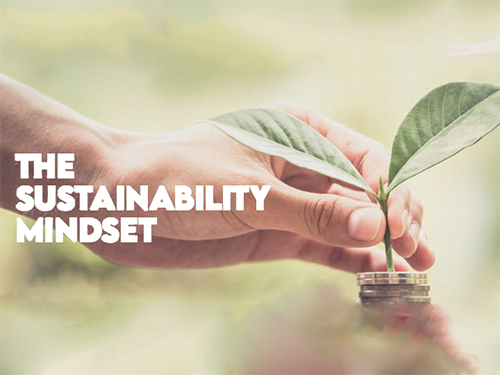
10 August 2020 – Osman Bedel –
Cultivating Sustainable Mindsets: Empowering Students through Sustainability Education
Introduction
In a world faced with pressing environmental challenges, sustainability education has emerged as a powerful approach to equip students with the knowledge and skills necessary to create a more sustainable future. By fostering an understanding of the environmental, economic, and social impacts of our choices, sustainability education empowers students to make informed decisions and take action towards a more sustainable way of living. In this blog post, we will explore the importance of sustainability education and how it equips students to live more responsibly and contribute to a sustainable society.
- Understanding the Interconnectedness of Systems
Sustainability education begins by fostering an understanding of the interconnectedness of ecological, economic, and social systems. Students learn about the intricate relationships between human actions, the environment, and society. This holistic perspective allows them to recognize that our choices have far-reaching consequences, impacting not only the natural world but also our communities and future generations.
- Environmental Awareness and Stewardship
Sustainability education places a strong emphasis on environmental awareness and stewardship. Students learn about the environmental challenges our planet faces, such as climate change, biodiversity loss, and resource depletion. Through hands-on experiences, field trips, and interactive learning activities, students develop a deep appreciation for the natural world and a sense of responsibility to protect and conserve it.
- Critical Thinking and Problem-Solving
Sustainability education fosters critical thinking skills that enable students to analyze complex problems through a sustainability lens. Students learn to evaluate the environmental, economic, and social impacts of different choices and solutions. They are encouraged to think critically, ask questions, and explore innovative and sustainable alternatives. By honing their problem-solving abilities, students are empowered to tackle real-world sustainability challenges creatively.
- Sustainable Lifestyle Choices
Sustainability education equips students with the knowledge to make sustainable lifestyle choices. They learn about sustainable practices in areas such as energy consumption, waste management, transportation, and food production. Through practical exercises and projects, students develop the skills to adopt environmentally friendly behaviors, such as reducing waste, conserving resources, and making conscious consumer choices.
- Encouraging Active Citizenship
Sustainability education encourages students to become active citizens, engaging in environmental and social issues. By learning about sustainable development goals, environmental justice, and social equity, students are inspired to advocate for positive change in their communities. They are encouraged to participate in sustainability-related initiatives, volunteer for environmental causes, and collaborate with others to address local and global sustainability challenges.
- Integrating Sustainability Across Disciplines
Sustainability education transcends traditional subject boundaries, integrating sustainability principles into various academic disciplines. By incorporating sustainability concepts into science, social studies, mathematics, and language arts, students understand the interdisciplinary nature of sustainability and its relevance to their lives. This approach helps students connect sustainability to their areas of interest, creating a more meaningful and comprehensive learning experience.
Conclusion
Sustainability education is a vital component of preparing students for the challenges and opportunities of the future. By imparting knowledge about environmental, economic, and social impacts, sustainability education empowers students to make informed choices and take action towards a more sustainable world. Through critical thinking, problem-solving, and active citizenship, students develop the skills necessary to contribute positively to their communities and drive sustainable change. As sustainability education becomes an integral part of our educational systems, we foster a generation of environmentally conscious individuals who are equipped to address the pressing sustainability issues of our time and create a brighter and more sustainable future for all.






